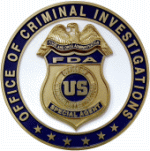Meds2Go Express Pharmacy, Inc. Sentenced for Role in Drug Diversion Scheme
Department of Justice
U.S. Attorney’s Office
Southern District of West Virginia
FOR IMMEDIATE RELEASE
Tuesday, June 2, 2020
Pharmacy Shut Down and Ordered to Pay $250,000 in Community Restitution and Forfeiture
CHARLESTON, W.Va. – Meds2Go Express Pharmacy, Inc. (Meds2Go), a pharmacy located in Alum Creek in Lincoln County, was sentenced for money laundering, announced United States Attorney Mike Stuart. The money laundering conviction arose out of a conspiracy between the pharmacy and Hope Clinic, a pain clinic operating as a pill mill, to dispense compound opioids for no legitimate medical purpose and outside the bounds of professional medical practice. As part of the plea agreement in December 2019, Meds2Go was shut down and has now been ordered to pay $250,000 toward community restitution and forfeiture. The community restitution will be paid for the costs associated with drug abuse treatment in West Virginia to redress the harm caused by illicit opioid usage stemming from the sale of prescription opioids. The West Virginia Crime Victim's Compensation Fund will receive 65% of the community restitution amount, and 35% will be paid to West Virginia Department of Health and Human Resources, Bureau of Behavioral Health and Health Facilities.
“Meds2Go betrayed the trust of the communities it served and our citizens. The pharmacy put profits above safety and aided the growth of the opioid crisis in West Virginia,” United States Attorney Mike Stuart said. “We have taken on the opiate crisis and we are making tremendous progress. We will continue to hold those that place greed above their solemn obligation to serve the best health of our citizens.”
Meds2Go previously admitted that in 2014 and 2015 it filled prescriptions written by physicians employed by Hope Clinic, despite its knowledge that there was no legitimate medical purpose for the prescriptions and that they were prescribed outside the usual course of medical practice. In order to maximize corporate profits, the pharmacy ignored numerous red flags that should have prevented them from dispensing the prescription medications written by Hope Clinic, such as: (1) an abnormally high amount of prescriptions for widely-abused, highly-addictive controlled substances such as oxycodone; (2) prescribed controlled substances to patients for long periods of time; (3) permitted refills before prior prescriptions should have run out; (4) ignored obvious signs that patients were drug addicts; (5) patients travelled long distances and from out of state; (6) multiple Hope Clinic physicians issued prescriptions to the same patient; (7) numerous family members who were all patients of Hope Clinic, came to the pharmacy at the same time; (8) insurance companies refused to pay for prescriptions from Hope Clinic; and (9) cash-only transactions.
Meds2Go further admitted that it engaged in illegal manufacturing of its own supply of oxycodone and methadone due to supply and demand by compounding pills in mass quantities at its locations in Alum Creek and Charleston. Due to the excessive amount of prescriptions for controlled substances written by Hope Clinic, the pharmacy could not obtain enough of a supply of oxycodone and methadone from its distributors. In order to keep up with the demand, the pharmacy bypassed purchase restrictions from the distributor by setting up and purchasing compounding equipment, training its employees to compound pills on a mass scale, purchasing powders and other raw materials, and manufacturing pills containing oxycodone and methadone. The compounded pills were then sold to cash-paying customers who had prescriptions written by Hope Clinic. The pharmacy used the proceeds from the illegal manufacturing and dispensing to carry on the operations of business.
United States District Judge Irene C. Berger imposed the sentence. The investigation was conducted by the U.S. Food and Drug Administration – Office of Inspector General (OIG) and the U.S. Department of Health and Human Services – Office of Inspector General (OIG). Assistant United States Attorneys Andrew Tessman and Steven I. Loew handled the prosecution.
###
Topic(s):
Opioids
Prescription Drugs
Component(s):
USAO - West Virginia, Southern
